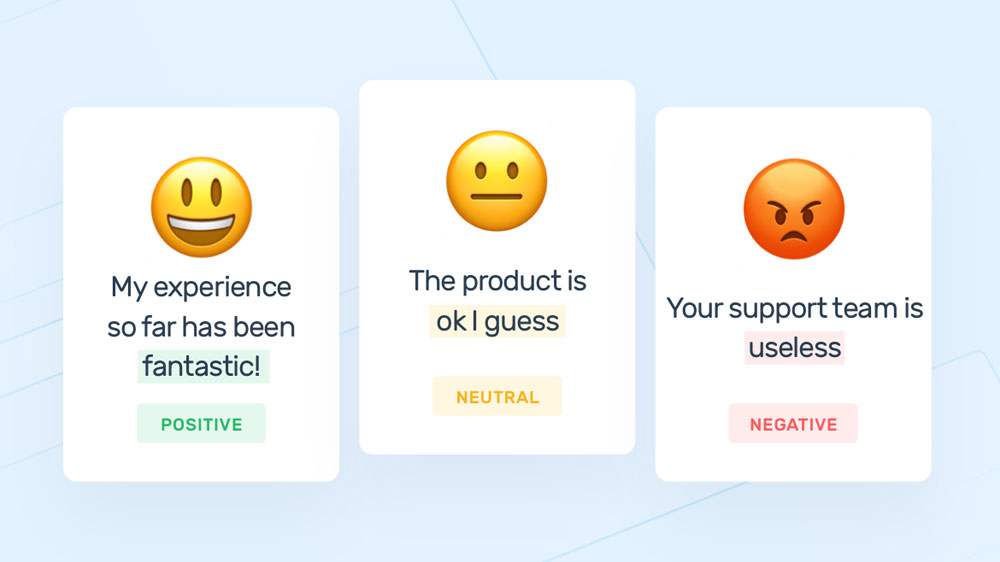NextWealth / Services / Natural Language Processing / Text Data Analysis : NLP
Text Data Analysis in Machine Learning
Machine learning is one of the significant disruptive technologies that have a lot of applications in the real world. Whether in making software analyze the past behavior of the customers or reading and learning the data from the past three years, you can easily manipulate the software to automatically analyze and evaluate real-time data. Often you will find businesses gathering insights from text data like survey forms, documents, reviews and feedback, and so on.
It is challenging to process text classification or understand what is written through software. This is where the concept of analysis of text forms comes into play. Understanding what this particular term means and its relationship with machine learning is essential.
Text data analysis is a machine language technique through which the software can analyze the text data and evaluate it to provide valuable insights into the business operations and customer base.
Why is text data analysis essential for business?
Before you hire review or sentiment analysis services, it is crucial to understand how evaluating these text datasets help businesses to improve their overall performance and productivity. Let’s have a look at how analyzing text data has proven to be so helpful at present.
- With the help of text data analysis, it will become easier for the software to process NLP text classification and ensure the datasets can be structured according to the categorical divisions of the text.
- The software can process sentiment data analysis and produce results on customer behavior, mindset, feelings, and emotions thanks to text data analysis.
- Businesses can understand how their products or services impact the target audience and whether the results from text classification and analysis through ML are satisfactory.
Types of text data analysis that NextWealth offers

Named Entity Recognition
At NextWealth, we use text data analytical methods to process named entity recognition. Our programming methods are based on NLP and the task is completed in two steps. First, our model takes the text data as the input and finds the entities or text that are referred to repeatedly. Second, it divides these named entities into categories based on certain predefined sets.

Sentiment analysis
With the help of the text classification dataset, we can quickly gain more insights into the sentiments of the customers or consumers. Learning the thoughts and emotions of the target audience plays a crucial role for businesses. This way, they can improvise the customer relationship strategies and sales and marketing funnels to take the user experience to the next level. Our experts efficiently work on the collected structured datasets and run analyses to know more about your customers’ beliefs and thoughts.

Text classification
We work on designing machine learning models for natural language processing text classification. First, we process the datasets to identify text segments and classify them according to some predetermined categories. It can be reviews, feedback, important documents, and so on.
Applications of Text Data Analysis
Several ways a named entity or text classification dataset can be evaluated based on ML. Following are some of the best real-time applications of text data analytical techniques.

Going through hundreds of loan applications, investment documents, and so on is impossible for a person. That’s why micro-financing and financing institutions use analytical models based on named entity recognition or text data evaluation. With this, they can go through multiple forms to identify the risks and profits associated with each loan application or investment.

You can see the application of sentiment analysis in customer care services, where the ML-based software can quickly evaluate the text datasets to understand the customer’s mindset and expectations. This helps businesses to understand the loopholes and get them fixed at the earliest.

Another application of NLP text data analysis is in business intelligence, where big data is involved. The algorithm can easily pick up the essential text pieces and provide deeper insights into the big data for empowering businesses with the proper knowledge.
Case Studies

Helped Leading Food Delivery Platform
to eliminate miscommunication on speech recognition process
Know More
Enriching Metadata for Smart Data curation platform
for Artificial Intelligence (AI) & Machine Learning (ML)
Know More

Chatbot Building and Training with API Integration
for one of the largest conversational AI companies
Know MoreWant to partner with us?
Tell us more about your data challenges
FAQs
Where do I get a dataset for sentiment analysis having neutral, positive, and negative classes?
The best sources from where one can collect data for sentiment analysis are customer reviews and feedback, documents, survey forms, and so on. These sources have all three regular classes- positive, neutral, and negative.
What are the best machine-learning techniques for text classification?
Some of the best algorithms and models based on ML that are used for classifying text datasets are Naïve Bayes, Deep Learning, Semi-Supervised Machine Learning, and more.
